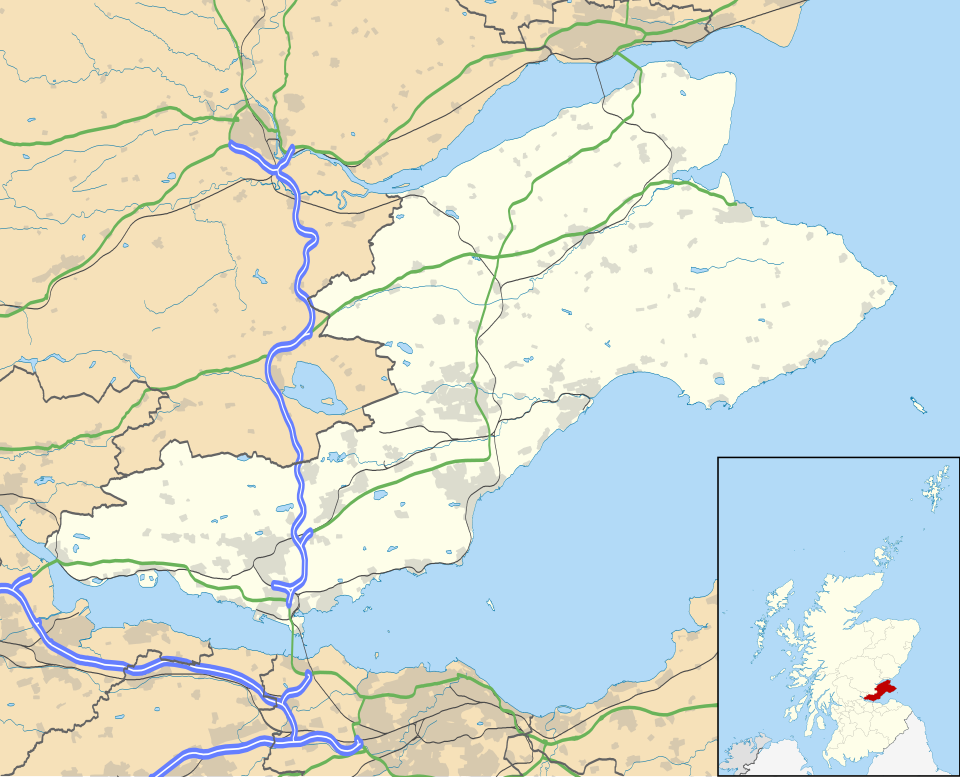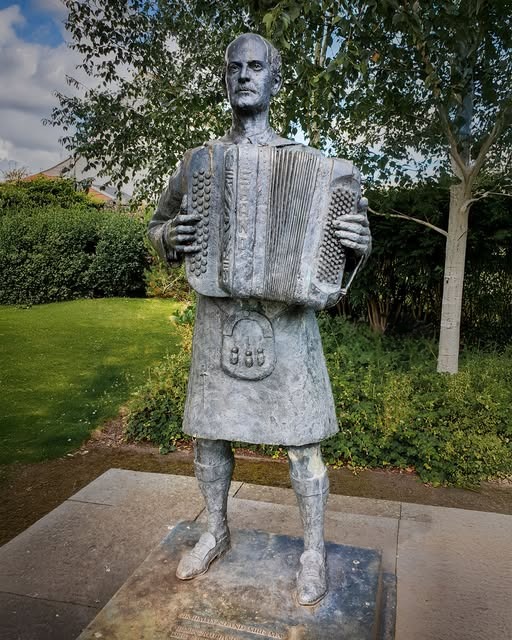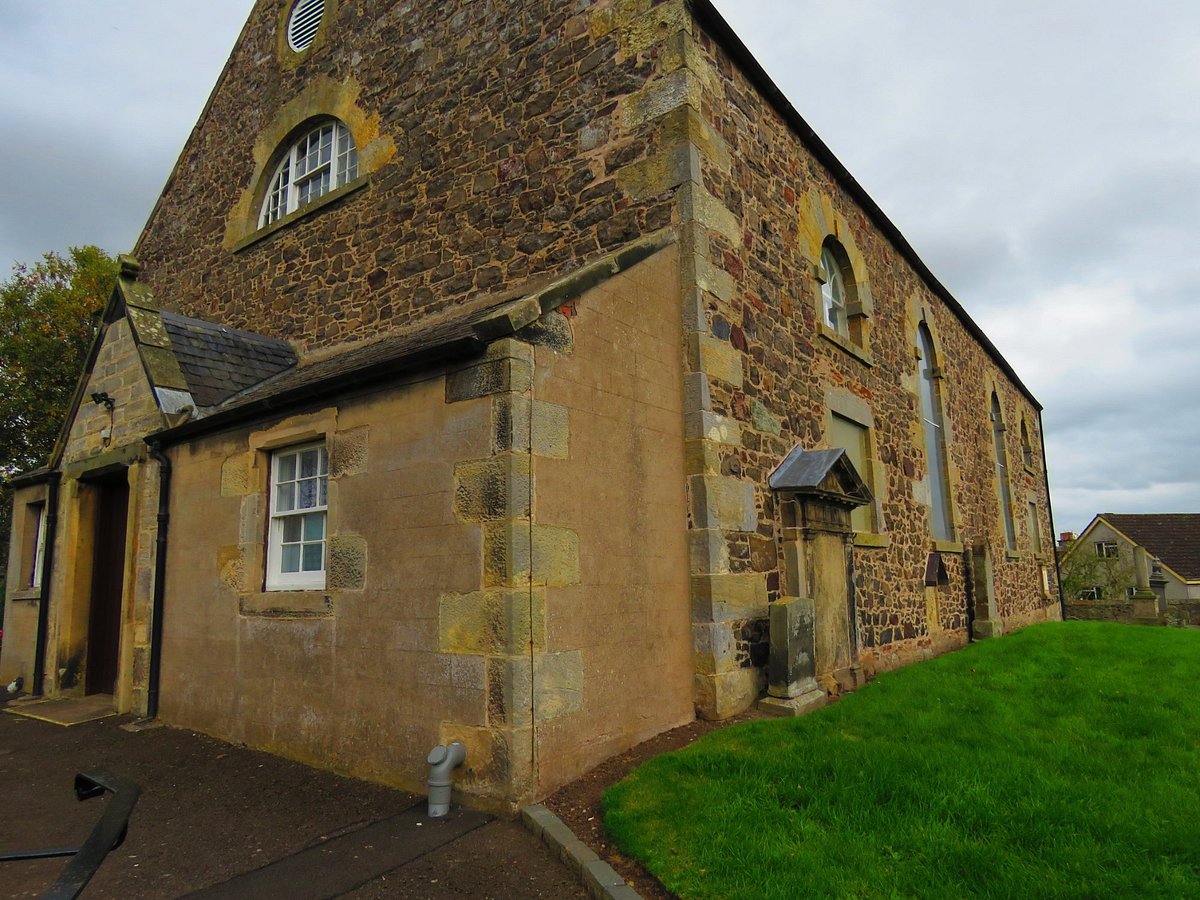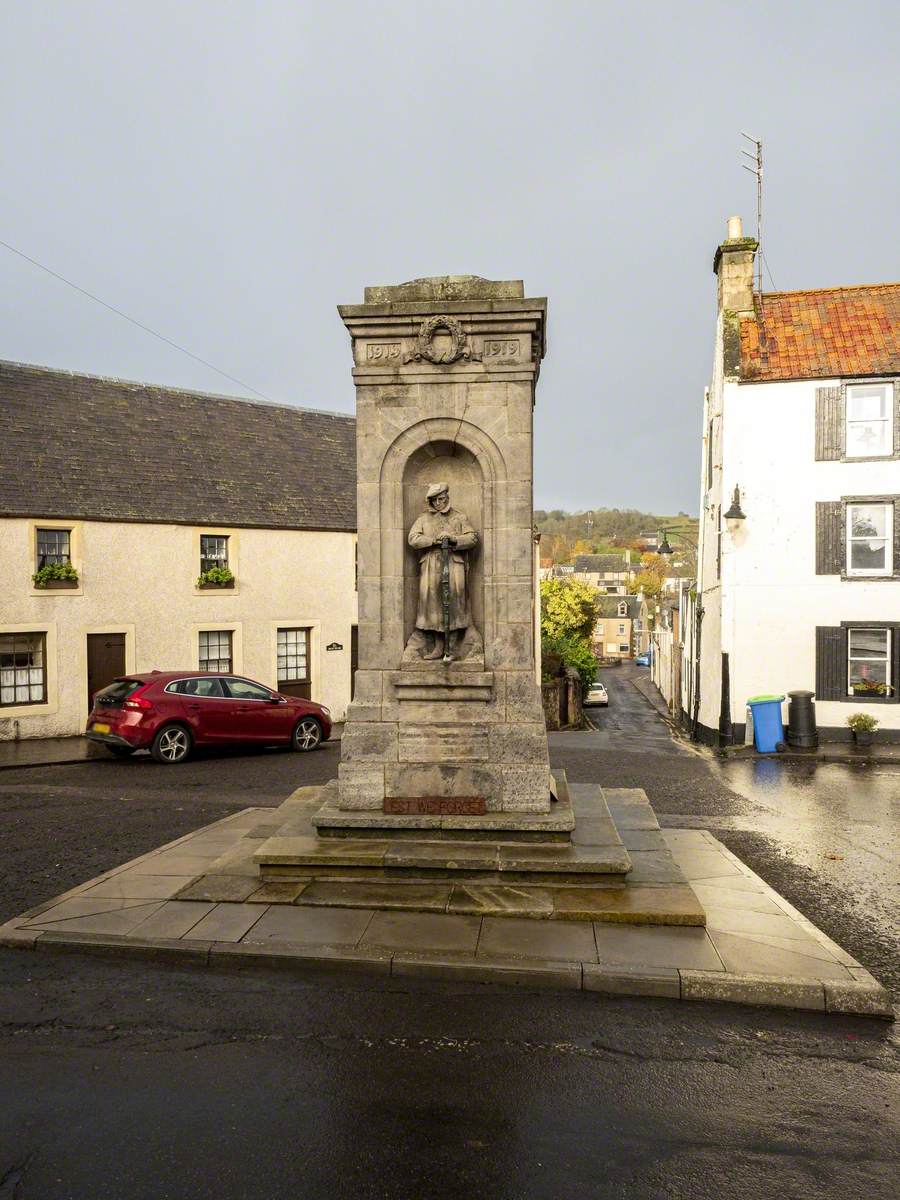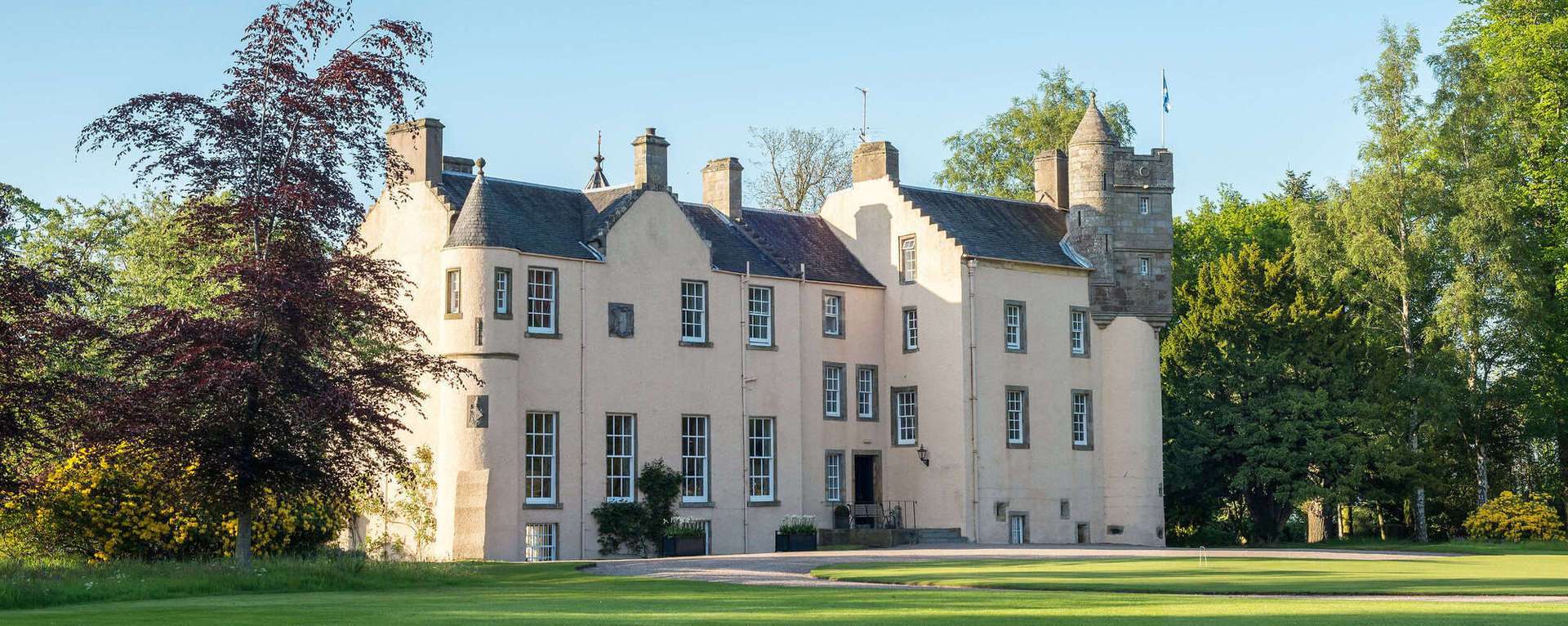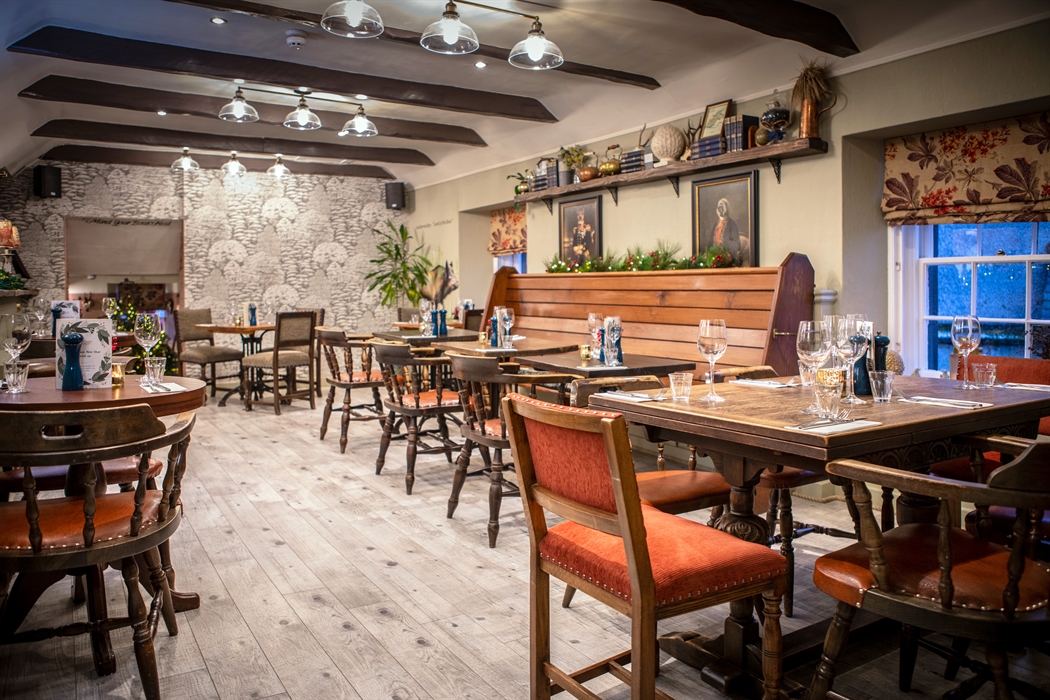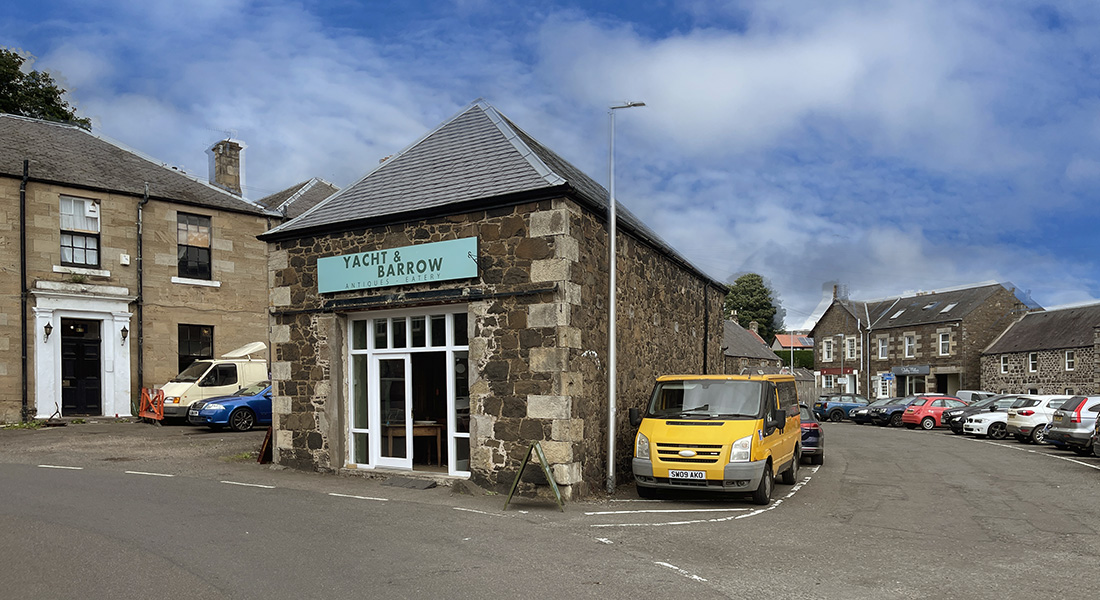Auchtermuchty Scotland | History, Top Things To See & More
Auchtermuchty, a charming town in Fife, Scotland, offers visitors a unique mix of history, nature, and culture. Here’s why it should be on your travel list.
Author:Callum FraserSep 04, 20252K Shares129.3K Views
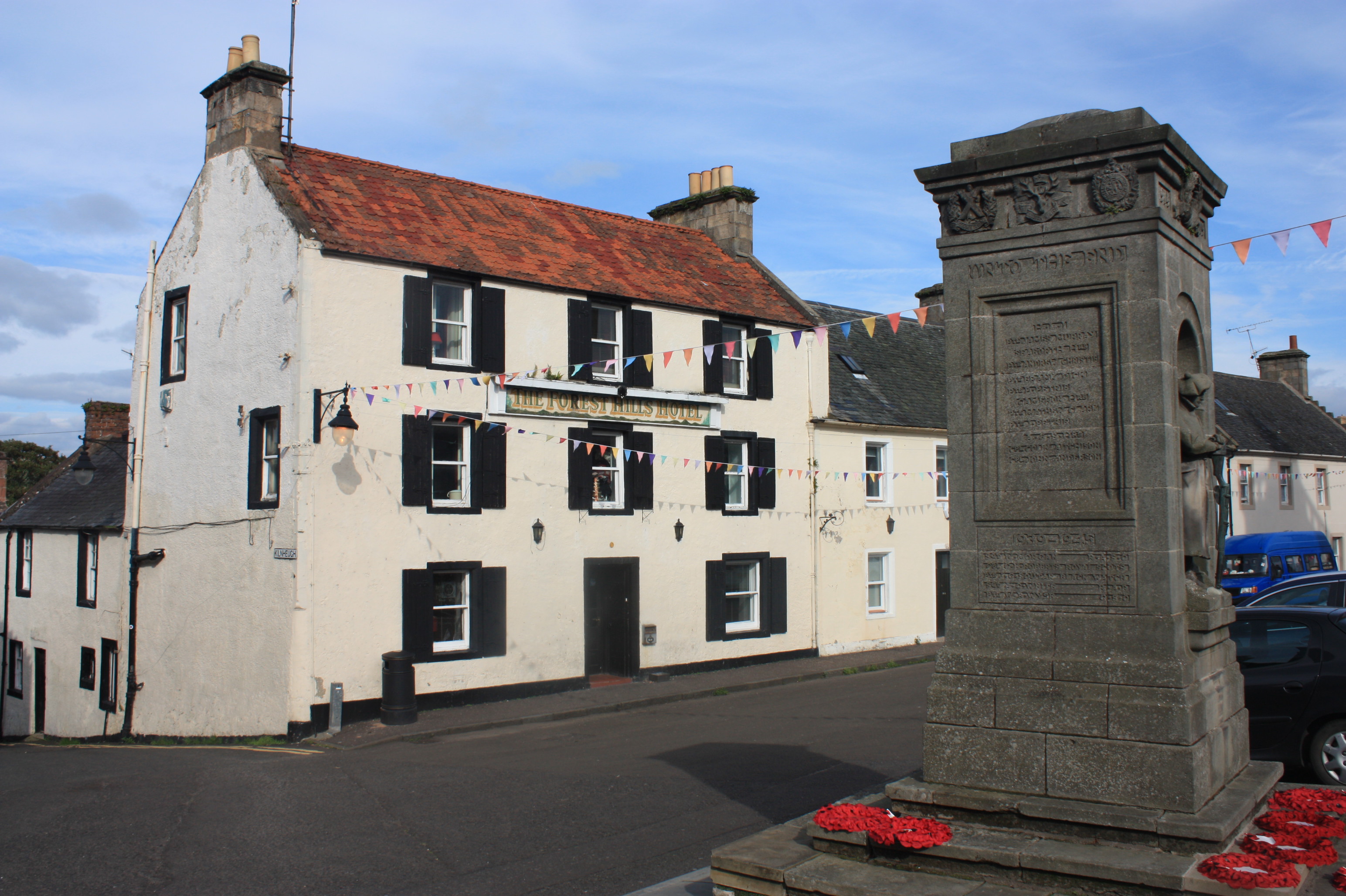
Auchtermuchty: Scotland’s Hidden Gem In The Heart Of Fife
Have you ever heard a place name that sounded so charmingly unique you had to know more? Auchtermuchtyis one of those names-a word that rolls off the tongue with a distinctly Scottish lilt and sparks immediate curiosity.
For many, it's a name they've encountered in a book or on a map, but the true essence of this small, historic burgh in the heart of Fife remains a mystery.
Beyond the famous name, Auchtermuchty holds a rich tapestry of history, culture, and community. It’s a place where centuries of heritage are woven into the very fabric of its streets and buildings. From its medieval origins to its modern-day character, the town offers a quiet, authentic glimpse into a side of Scotland that isn't always on the main tourist trail.
This guide will take you on a journey through Auchtermuchty, helping you understand its unique identity and providing insights that go beyond the usual travelfare. We'll uncover its hidden gems, explore its fascinating history, and answer the questions you didn’t even know you had about this captivating corner of Fife.
Quick Facts about Auchtermuchty
- Location: North-east Fife, Scotland, about 9 miles from Cupar and 25 miles from Edinburgh.
- Name Meaning: Derived from Gaelic, likely meaning upland of the wild boar.
- Population: Around 2,000 residents.
- Historic Role: Once a thriving weaving town during the linen boom of the 18th and 19th centuries.
- Famous Connections: Birthplace of The Proclaimers(twin brothers Charlie and Craig Reid) and associated with J.M. Barrie (Peter Panauthor).
- Architecture: Known for weavers’ cottages, wynds, and preserved historic buildings like the Town House Library.
- Events: Hosts the “Muchty Festival,” a popular traditional music and folk event that draws performers from across Scotland.
- Nearby Highlights: Close to Falkland Palace, Lomond Hills Regional Park, and the market town of Cupar.
Pronouncing And Understanding The Meaning Of Auchtermuchty
Before we dive into what makes Auchtermuchty special, let's address the most common question: how do you say it? The pronunciation can be a bit of a tongue-twister for those unfamiliar with Scottish Gaelic. It's pronounced "AWK-ter-MUCK-tee," with the emphasis on the first and third syllables. Don't worry if you don't get it right the first time; many visitors find it a fun challenge.
The name itself provides a glimpse into the town's origins. "Auchter" is a prefix common in Scottish place names, derived from the Gaelic "Uachdar," meaning "upper" or "high."
"Muchty" is believed to refer to a wild boar, which were once prevalent in the area. Combining these, the name literally translates to "upland of the pigs" or "upper pig enclosure." This simple meaning connects the modern town to its founding, and this connection is still found today: the local bowling club's badge features a boar's head, and the town is home to the Boar's Head pub.
History Of Auchtermuchty
The story of Auchtermuchty is one of resilience and transformation, stretching back far beyond its royal burgh status. Archaeological finds hint at a Roman temporary camp, a vast 63-acre site dating to around 210 AD. This suggests the area was a strategic point long before it was formally settled.
The town’s formal history began in 1517 when King James V granted it a royal burgh charter. This act gave Auchtermuchty a new spark of civic pride and important trading privileges that allowed it to establish its own markets and fairs, fostering a community of merchants and craftsmen.
A Legacy Forged In Industry And Craft
The landscape of life in Auchtermuchty was once defined by the rhythm of industry. The town thrived as a center of craft, with its linen looms humming in hundreds of homes by the mid-19th century.
Exports from Auchtermuchty fueled the local economy, and the bleaching greens and flat "Orchard Flats" where cloth was dried are a physical reminder of this industrious past.
The town also left its mark on a national scale through its foundries and the invention of Whitie's weighing machines. Even its whisky history, though short-lived, tells a fascinating story: the Stratheden Distillery, founded in 1829, was a local venture whose fate was sealed by U.S. Prohibition, illustrating how global forces could ripple into a small Scottish town.
A Town On The Rails And The Screen
Like many towns in Scotland, Auchtermuchty train station was once a vital transport link. It first opened on June 6, 1857, as part of the Fife and Kinross Railway. However, passenger services were withdrawn on February 12, 1951, and the station permanently closed in 1952. Today, the former station building still stands, having been repurposed for other uses.
Auchtermuchty is a town woven into the fabric of Scottish culture in unexpected ways. The humorous medieval poem “Wife of Auchtermuchty” captures life’s gentle ironies, while more modern tales were told on screen.
The much-loved 1990s TV series Dr. Finlay(a revival of the popular 1960s show) was filmed here, with the town's charming streets standing in for the fictional "Tannochbrae."
It also has a famous musical heritage: the music video for The Proclaimers' hit song “Letter from America” was filmed in Auchtermuchty, bringing the town into the spotlight for a wider audience.
Famous People From Auchtermuchty
Despite its small size, this Fife town has produced several well-known figures who have made a significant impact both nationally and internationally.
- Sir Jimmy Shand (1908–2000):A legendary accordionist and bandleader who played a key role in popularizing Scottish dance music. The town honors him with a statue, recognizing him as one of its most cherished and musically influential sons.
- The Proclaimers:The famous Scottish musical duo who chose Auchtermuchty to film the video for their hit song “Letter from America,” bringing the town's distinct charm to a wider global audience.
- James Ferrier (1800–1888):Born in Auchtermuchty, he became a successful merchant in Montreal, Canada, before serving as the city's mayor and later as a Canadian senator, representing a remarkable story of local roots and international success.
Auchtermuchty's Location In The Heart Of Fife
For those wondering which shire Auchtermuchty is in, the answer is the historic county of Fife. While modern administrative boundaries have changed, asking which shire Auchtermuchty is in connects you to its historical identity as a part of the "Kingdom of Fife." As a central point in this beautiful region, the town serves as an excellent base for exploring the area.
It sits within a landscape of rolling hills and fertile farmland, offering a quieter alternative to the more bustling coastal towns. This central location makes it easy to travel to the wider attractions of the region, from the famous golf courses and university of St Andrews to the historic royal residence of Falkland Palace.
Getting To The Beach From Auchtermuchty
A common misconception is that because Auchtermuchty is in Fife, it must be on the coast. In reality, the town is a classic landlocked burgh, positioned a short distance inland from the Firth of Forth. However, this is not a limitation but an advantage. Its location provides easy access to some of Scotland’s most beautiful coastal towns without the constant tourist traffic.
For those seeking the sound of the sea, the stunning coastline of the East Neuk of Fife is just a short drive away. You can easily reach the picturesque fishing villages of Anstruther, Crail, and Pittenweem. For a more famous beach experience, the iconic West Sands beach in St Andrews-made famous by the movie Chariots of Fire-is a mere 25-minute drive from the town centre.
Things To Do In Auchtermuchty
Walk The Historic Streets
Auchtermuchty’s charm is best appreciated at a slow pace. Start with the High Street, where you’ll notice rows of 18th and 19th-century weavers’ cottages. Their low doorways and narrow windows reflect the days when linen weaving was the town’s main trade.
Take time to wander down the wynds (narrow lanes) that branch off, where hidden gardens and stonework details reward the curious eye. If you’re keen on photography, late afternoon light adds a golden hue to the stone buildings.
Jimmy Shand Statue
A magnificent bronze statue stands as a heartfelt tribute to Sir Jimmy Shand, the legendary "King of Scottish Country Dance Music" and one of Auchtermuchty's most famous sons.
The statue, sculpted by local artist David Annand, is a perfect near life-size likeness of Shand in his 1950s heyday, complete with a wonderfully detailed Hohner Special accordion.
It serves as a permanent reminder of the musician who recorded more tracks than The Beatles and Elvis Presley combined, and whose foot-tapping rhythms continue to be an iconic part of Scottish culture.
Auchtermuchty Parish Church
This Church of Scotland denomination is a peaceful religious site and cemetery that offers a glimpse into the town's spiritual heritage. Its most fascinating feature is found in its bell tower, which houses bells with a history dating back to the medieval period.
These rare and historic bells would have chimed through centuries of the town's life, and their story adds a tangible layer of deep history to the church, inviting a moment of quiet reflection on the passage of time.
The Town House (1729)
Admire this historic building, which is a prime example of Scottish medieval style. It once served as the central hub of civic life and law, a role signified by its clock tower and a set of grim tolbooth cells on the ground floor.
Today, it serves a more community-focused purpose as the local library. Inside, a beautiful and detailed 1883 map by George Jamieson hangs on display, a fascinating visual record that showcases the town's old routes and architecture in stunning detail, a treasured piece of local history.
Auld Licht Kirk
A must-see for anyone interested in Scottish literary or religious history, this church is the very place where J.M. Barrie’s ancestors worshipped. Barrie's grandmother, Margaret Ogilvy, was an active member of this austere and fervent sect, and their deep-rooted faith and strict way of life left a profound impression on the author.
Visiting the Auld Licht Kirk allows you to walk in the footsteps of the people who inspired the characters and themes in Barrie’s early works, such as Auld Licht Idylls, and gain a deeper understanding of the creator of Peter Pan.
Auchtermuchty War Memorial
Designed by the renowned architect Reginald Fairlie, whose work includes many prominent Scottish buildings and memorials, this monument is a truly unique piece. Instead of the typical heroic stance, it features a solemn, bowed Scottish soldier that reflects communal loss rather than triumph.
This moving and rare image powerfully captures the profound grief felt by the community after the Great War, making it a poignant landmark that speaks to a shared history of sacrifice.
Local Cafés And Tearooms
Auchtermuchty may be small, but its cafés punch above their weight in warmth and hospitality. The Tannochbrae Tearoom is particularly beloved-it recreates the feel of Dr. Finlay’s Casebook, a 1960s TV series filmed in the area. Step inside for a nostalgic experience alongside hearty soups, homemade scones, and classic teas.
Elsewhere in town, small cafés serve fresh bakes and provide a perfect opportunity to chat with locals, who are often eager to share stories about the town’s past and present.
Myres Castle
Just a short distance from the town lies Myres Castle, a private estate with a history stretching back to the 16th century. Its turrets, gardens, and stone walls evoke the grandeur of Scotland’s medieval past.
While the interior is not generally open to the public, you can sometimes book guided visits or attend seasonal events hosted on the grounds. Even from the outside, glimpses of the castle across fields or through its gates are a highlight for photographers and history buffs alike.
Local Heritage And Pubs
Auchtermuchty is a place where oral history thrives. Visit during one of Muchty Heritage’s open days, and you’ll find fascinating exhibitions about weaving, wartime life, and local folklore. Otherwise, the pubs are the best place to absorb the town’s living traditions.
Step into a cozy local, order a pint, and listen-stories of famous musicians from the town (like The Proclaimers) and tales of everyday village life flow as freely as the beer. In the evenings, you may even catch live folk music sessions.
A Taste Of Auchtermuchty: Where To Eat
While small, the town offers a few excellent local establishments that are highly-regarded by visitors and locals alike.
The Boar's Head, Fife
As its name suggests, The Boar’s Headpays tribute to the town’s Gaelic roots — “Auchtermuchty” is believed to mean upland of the wild boar. This charming hotel, restaurant, and pub is one of the community’s oldest institutions, and it has become a favorite among both locals and visitors.
With a stellar 4.8-star reputation, The Boar’s Head is best known for its traditional British and Scottish comfort food. Guests rave about the tender roast beef served with crisp Yorkshire pudding, but the menu also features staples like fish and chips, steak pie, and warming seasonal soups.
The cozy pub setting, complete with rustic interiors and friendly staff, makes it an ideal place to linger after a day of sightseeing. For travelers looking to stay overnight, its accommodation adds extra convenience.
Yacht & Barrow
For a lighter option, Yacht & Barrowoffers a laid-back café experience right in the heart of town. It’s especially popular for brunch, drawing praise for its fresh baking, hearty breakfast rolls, and strong coffee. Visitors often recommend starting the day here before setting off on a walking tour of Auchtermuchty’s historic streets.
The café also has a welcoming atmosphere that makes it easy to settle in for a break between sights. With a reputation for excellent service and consistently tasty food, it’s become a modern staple in a town otherwise known for its deep history.
More Local Flavors
- Tannochbrae Tearoom: A nostalgic favorite for tea, scones, and cakes, named after the fictional village from Dr. Finlay’s Casebook.
- Pubs and Inns: Several traditional pubs still serve as social hubs, offering everything from hearty meals to local ales. They’re also excellent places to strike up conversations with residents and hear stories about the town.
Also Check Out: Culinary Delights In Fife - Discover The Best Places To Eat
FAQs About Auchtermuchty
How Old Is Auchtermuchty?
The community of Auchtermuchty has existed since at least the 12th century, with its official status as a royal burgh granted in 1517.
What Is Auchtermuchty Famous For?
Auchtermuchty is famous for its unique name, its historical role as a royal burgh, its connection to the linen industry, and its place in Scottish literary history through J.M. Barrie.
What Does Auchtermuchty Mean?
The name "Auchtermuchty" is derived from Scottish Gaelic and means "the high ground of the wild boar."
Is Auchtermuchty A Nice Place To Live?
Yes, for those seeking a peaceful, rural lifestyle, it is a very nice place to live. It has a tight-knit community, a relaxed pace of life, and provides convenient access to larger towns and cities for commuting.
What's The Nearest Beach To Auchtermuchty?
The nearest beaches are on the East Neuk of Fife, with the coastal towns of St Andrews, Crail, and Anstruther all within a short driving distance.
Which Shire Is Auchtermuchty In?
Auchtermuchty is in the historic county of Fife, often referred to as the "Kingdom of Fife."
A Quick Recap
Auchtermuchty is much more than its name suggests. It's a place of deep historical resonance, a living link to Scotland’s past, and a testament to the enduring power of a close-knit community.
By exploring its quiet streets, understanding its history, and engaging with its community, you can truly appreciate why Auchtermuchty is a cherished part of the Fife landscape. It’s a place that reminds us that sometimes the most profound journeys are to be found in the most unexpected corners of the world.
Jump to
Auchtermuchty: Scotland’s Hidden Gem In The Heart Of Fife
Quick Facts about Auchtermuchty
Pronouncing And Understanding The Meaning Of Auchtermuchty
History Of Auchtermuchty
Famous People From Auchtermuchty
Auchtermuchty's Location In The Heart Of Fife
Getting To The Beach From Auchtermuchty
Things To Do In Auchtermuchty
A Taste Of Auchtermuchty: Where To Eat
FAQs About Auchtermuchty
A Quick Recap

Callum Fraser
Author
Callum Fraser isn't just a writer about Scotland; he's a product of its rugged landscape and rich history. Born and raised in Perthshire, with the Highlands as his backyard, his love for the nation's stories was kindled by local storytellers and long walks through ancient glens.
This passion led him to pursue a degree in Scottish History from the University of Edinburgh. For over 15 years, Callum has dedicated himself to exploring and documenting his homeland, fusing his academic knowledge with essential, on-the-ground experience gained from charting road trips through the Cairngorms, hiking the misty Cuillins of Skye, and uncovering the secrets of traditional recipes in his family's kitchen.
As the Editor-in-Chief and Lead Author for Scotland's Enchanting Kingdom, Callum's mission is simple: to be your most trusted guide. He combines meticulous research with a storyteller's heart to help you discover the authentic magic of Scotland — from its best-kept travel secrets to its most cherished traditional recipes.
Latest Articles
Popular Articles
